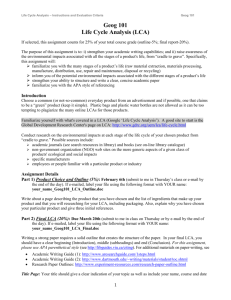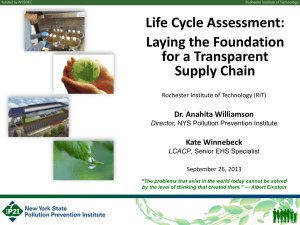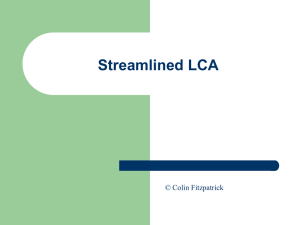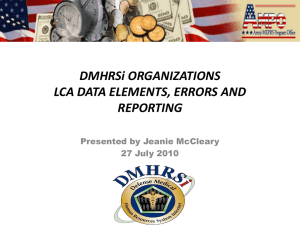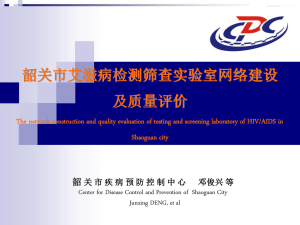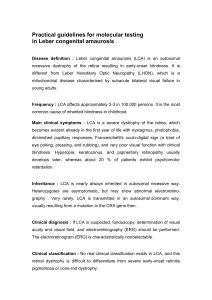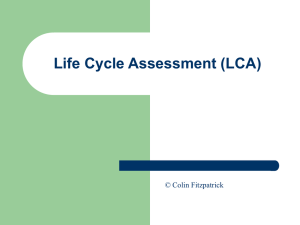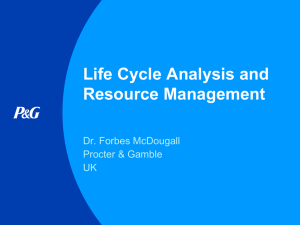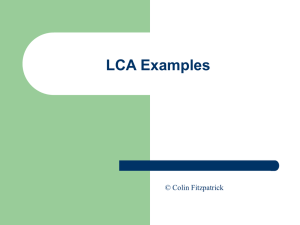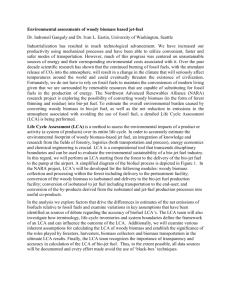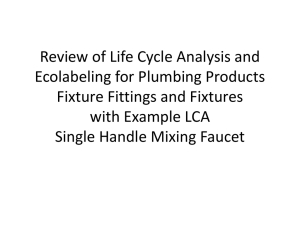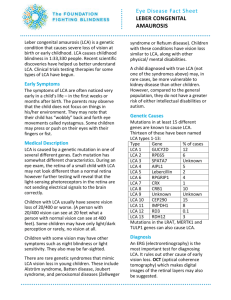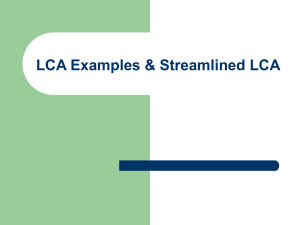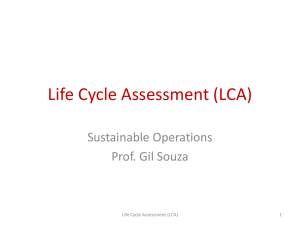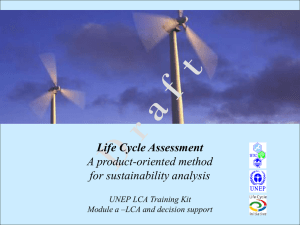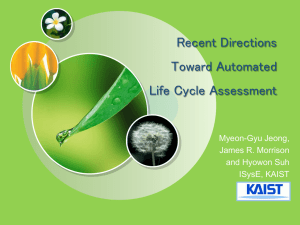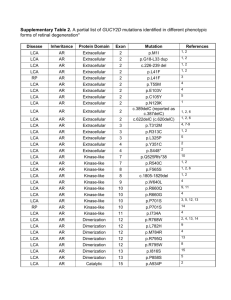LCA Executive Guide PPT presentation
advertisement
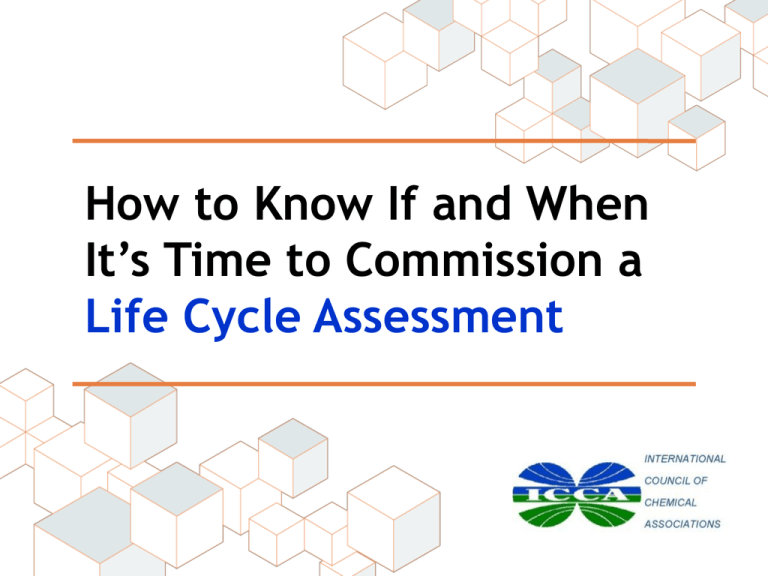
How to Know If and When It’s Time to Commission a Life Cycle Assessment What is a Life Cycle Assessment? Life Cycle Thinking = Taking account of the environmental, social, economic impacts of a product over its entire life cycle Focus of ICCA Guide - Describe: • What is an LCA • How LCA can be used to understand chemical industry contributions to sustainability • Benefits and limitations of LCAs • How to interpret/communicate LCA results History of LCA • Developed in the late 1960s/early 1970s • Evolved from “eco-profiles” to current 4 basic, interdependent stages of an LCA: • Goal and Scope • Inventory Analysis • Impact Assessment • Interpretation Commonly Used LCA Metrics International/U.S. sources identified and defined key metrics, addressing: • Energy Demand • Global Warming • Ozone Depletion • Water Footprint • Eco and Human Toxicity Assessment • Land Use What Can LCA Do? • Highlight value chain efficiency opportunities • Promote understanding of product manufacture and delivery systems • Identify areas in value chain that need improvement • Ensure that changes do not “shift the burden” • Highlights trade offs • Compare two systems that deliver same service • Benchmark progress • Provide footprinting data • Support environmental claims What Doesn’t LCA Do? • Does NOT measure product performance • Does NOT address compliance with environmental laws • Does NOT include “bricks and mortar” of capital equipment • Does NOT include analysis on support personnel needs • Does NOT normally measure building space conditioning • Does NOT include minor inputs • Does NOT provide information about employee direct impacts • Is NOT a risk assessment analysis • Does NOT define specific course of action to take How to Decide if LCA is the Right Tool Examine: • Product environmental/energy attributes • Trade-offs • Consideration of life cycle stages, unit processes and flows Integrated Decision Making • Review of decision making process and tools – including and separate from an LCA • Summary of the strengths and limitations of an LCA LCA Approaches: What Works Best Basic Questions: • What are you trying to accomplish? • What questions are you answering? • Who will use the results? Types of LCAs: • Scoping, Screening and Simplified LCAs • Comprehensive Complete LCAs • Product Comparisons • Attributional and Consequential LCAs Data Availability, Quality and Sources • Basic data quality requirements to consider before conducting an LCA • Different types of data: • Primary company data • Public or purchased data Professional Expertise Benefits of LCA tools: • Using LCA software • Engaging a qualified LCA professional Using and Communicating LCA Results Key considerations when conducting an LCA: • Be as accurate as possible • Understand the boundaries of your study • Don’t take shortcuts – comprehensive data collection is important • Don’t “cherry pick” study results – full transparency is key • Importance of critical review / peer review Conclusion • ICCA hopes this guide enables decision makers to pick and choose the right LCA tools • Keep researching – new tools and developments are always on the horizon ACLCA – New Certification Effort • ACLCA supports certification of LCA professionals with LCACP exam (conforms with ISO 17024): http://www.lcacenter.org/certification .aspx • Special committee formed to develop similar certification for LCA executives who manage sustainable programs • ICCA Executive Guide included as a resource under ACLCA certification exam/topics Questions? For More Information, contact: Mike Levy Senior Director, Life Cycle Issues American Chemistry Council (ACC) Plastics Division 700 2nd Street, NE Washington, D.C. 20002 Mike_Levy@americanchemistry.com

